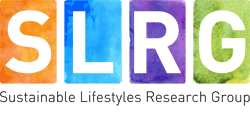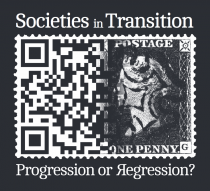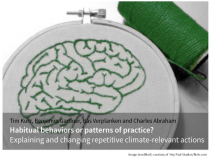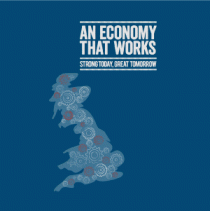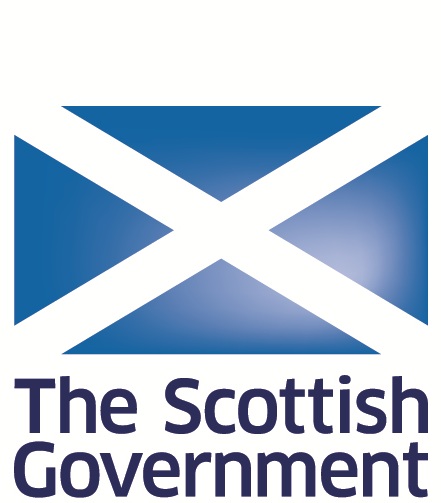- About
- Team
- Projects
- Children and the Environment
- ELiCiT (Exploring lifestyle changes in transition)
- Foundations for Sustainable Living
- HABITs
- Mapping Rebound Effects
- PASSAGE (Prosperity and Sustainability in the Green Economy)
- Policy Dialogue
- Price Responsiveness of Demand in Energy
- Resilience and Sustainable Lifestyles
- Sustainability Transitions in Food Systems
- Sustainable Living in Remote Rural Scotland
- Publications
- News
- Events
Policy Dialogue
Project Team: Ian Christie, Julie Barnett and Tim Jackson



Audio: Ian Christie, Project Summary for SLRG Dissemination Event | 3 June 2014
There is growing interest among policy communities in evaluation of policies and in the relationship between research-based evidence and the process of policy development. The Department for Environment, Food and Rural Affairs (Defra) has undertaken a major review of investment in evidence, and has begun to develop an ‘open’ approach to policymaking drawing on networks of stakeholders. Across Whitehall, there are initiatives to examine and draw on ‘what works’ in design and delivery of ‘evidence-based policy’.
Against this backdrop, this SLRG project has explored issues concerning the relationship between research and policy development. What kinds of dialogue and interaction between research and policy communities can promote better use of evidence in policymaking? And specifically, what are the challenges and possibilities concerning the relationship between researchers and policymakers in the field of sustainable living and behaviour change? How do policy-makers make use of research evidence ? How can researchers make their evidence topical and accessible to policymakers?
To explore these themes in detail we have used a methodology based on in-depth interviews with a purposively selected sample of expert informants and carried out related case studies. Interview questions and themes have been based on an initial scoping review of literature on issues concerning research-policy relationships and the impact of evidence on policy development.
The main elements of the project have been as follows. First, interviews with a sample of ‘boundary-spanning’ expert informants with experience of working in and across policy and research communities in relation to sustainable development and environmental policy, with emphasis on pro-environmental behaviours and consumption. Respondents’ experience has included work in Whitehall, devolved administrations, public agencies, think-tanks, universities and consultancy. Second, we have conducted two case studies based on interviews with research and policy staff within Defra and the Scottish Government. These have attempted to explore and map the field of influence of evidence bases on pro-environmental behaviours.
The findings reinforce the message from the literature on research-policy interactions that there are no ‘golden threads’ from evidence to readily identifiable policy impacts within a clear cycle of policy development. Rather, it makes sense to focus on fields of influence for research, and to recognise the importance of multiple contexts and uses for evidence. These factors need to be reflected in new approaches to research-policy dialogue and relationships, which are needed in order to take account of the changing political and policy landscape in UK, and of diversity in approaches to sustainable lifestyle change.
Respondents also called for a re-imagination of research-policy relationships, and raised numerous areas of tension relating to the wider political and policy background. These included concern about Whitehall’s capacity for synthesis and effective use of established bodies of evidence; about the potential mismatch between new approaches to evidence-based policy and the nature of challenges of unsustainable development and behaviour change; and about the problems for researchers of understanding policy development processes.
Contact
For further information please contact Ian Christie or Tim Jackson.

Image (modified): courtesy of Pablo Andres / Flickr.com
